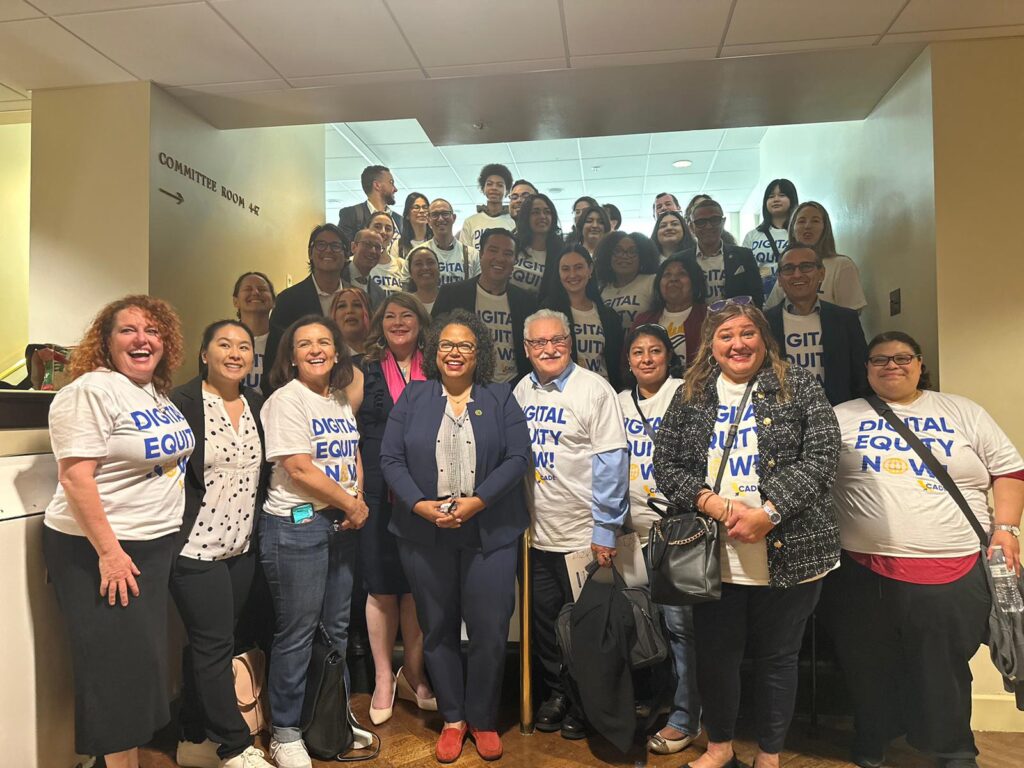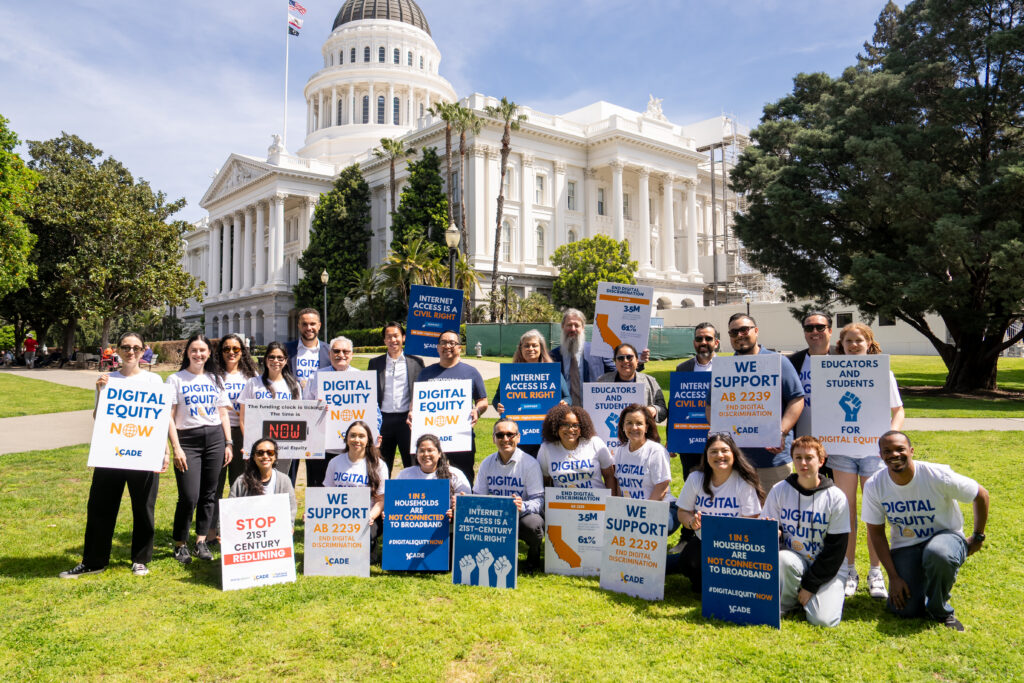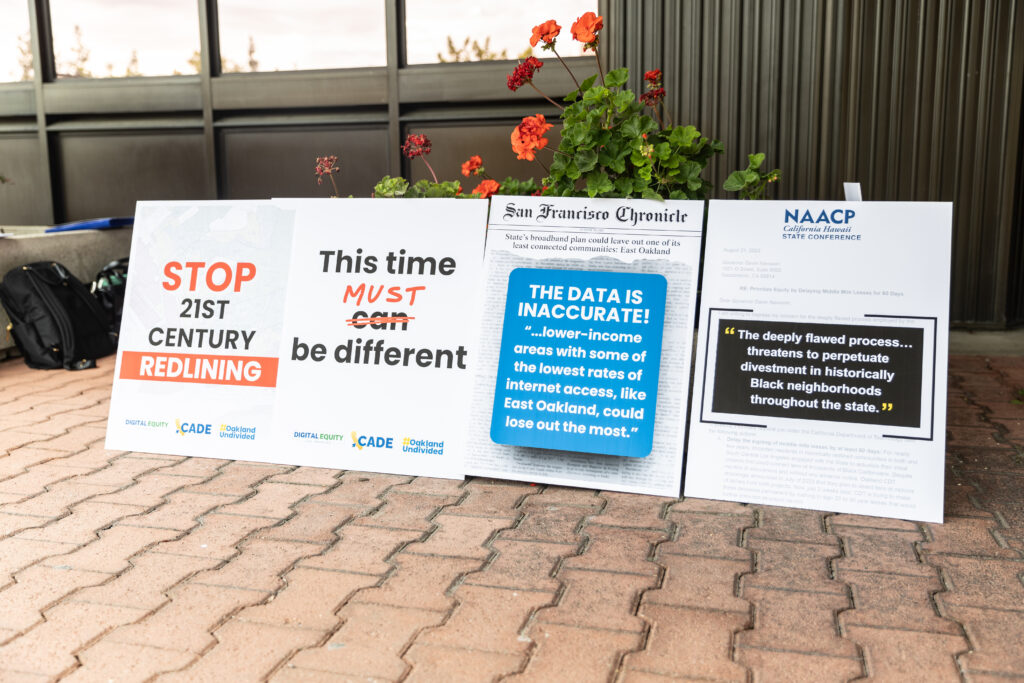
Let’s Talk… Digital Equity
Digital Discrimination in the Modern Era
June 24, 2024
From the beginning of our grade school education, we are taught a central ethos governs our ability to achieve the American Dream. Making it or building a better life than the one your parents had is made possible by our common principle of “equal opportunity”. This principle is not only embedded in the fabric of the American psyche but carved into the framework of certain legal concepts, designed to protect our society against the deterioration of one of our most sacred tenets.
Of course, by the time we’re old enough to learn the intricate complexities and paradoxes of our storied history, most of us come to understand that, although each successive generation has brought us closer to meeting this ideal, we have historically fallen short of it. And in this modern era of technological advancements and economic prosperity, we stand at the vanguard of the next great fight in this struggle.
In an age where connectivity is synonymous with opportunity, Californians continue to experience a reality familiar to many Americans living in rural, urban, and tribal communities, and on the wrong side of the digital divide – access to fast, reliable internet is lopsided, and largely dependent on the neighborhood or zip code in which you reside. In other words, digital discrimination is not only real, but has grown to become a persistent barrier for many and an issue that is impossible to ignore. This truth, recognized by digital equity advocates as a result of decades of “digital redlining”, now more than ever perpetuates systemic inequalities, stifles economic growth, and threatens social mobility.

Recognizing the urgency of this issue, and the need for concrete legislative action aimed at fostering digital equity, AB 2239, introduced by Assemblymember Mia Bonta earlier this year, tackles this injustice head-on. Modeled after a November 2023 ruling by the Federal Communications Commission (FCC) that created a “digital discrimination of access” definition, AB 2239 will lay the foundation to prevent, fight, and address biased practices of this great disparity in California.
The digital discrimination of access definition proposed by AB 2239, and modeled after the aforementioned FCC rule, is straightforward – it encompasses policies or practices that differentially impact consumers' access to broadband internet based on race, ethnicity, religion, or national origin, without genuine issues of technical or economic feasibility. By defining and establishing clear parameters for what constitutes discrimination, this bill empowers our state’s legal system to hold Internet Service Providers (ISPs) accountable, and with its passage will provide Californians access to equal digital opportunities.
This landmark legislation will not only protect Californians against intentional discrimination, but more importantly, will help deliver equity to communities who currently bear the brunt of unintentional discriminatory practices. Disparate impact standards have a long precedent in American legal history and have been an important tool in fostering greater societal parity for millions of Americans – in fact, Congress has created and incorporated disparate impact principles in statutes dealing with civil rights, education, housing, and employment. Why then, you may be asking, is it now necessary to apply this same disparate impact standard to address this issue of digital discrimination, and furthermore, is this standard fair to ISPs, who are the entities set to be held accountable?

First, intentional or not, discriminatory practices in broadband access not only exist but are part of a persistent status quo and they will continue to persist without decisive action. Depriving residents of low-income neighborhoods from the same investment, service, and price opportunities as those of wealthy communities is a disturbing and unacceptable actuality in every part of our state. This injustice not only undermines our principles of equality, but it robs these California communities of essential opportunities to thrive. One study found “fixed broadband adoption drove 10.9% of the accumulated growth in the U.S. gross domestic product (GDP) between 2010 and 2020”, or the equivalent of an additional $1.3 trillion to US GDP. Imagine what equal access could do for the California economy, which at any given time stands as the fourth or fifth largest in the world.
Some people may question the existence of such an inequity, but this inequity is well known to members of these communities and has also been well-documented by numerous independent reports, including The Markup, CalAdvocates, California Community Foundation, Communications Workers of America and National Digital Inclusion Alliance, UC Berkeley, and others. It’s important to note that digital equity is not just a matter of equal opportunity – it is also a matter of economic competitiveness. In an increasingly globalized economy, nations or states that fail to provide equal access to fast, reliable, and robust broadband infrastructure risk falling behind. By ensuring investments in digital connectivity and access are inclusive and equitable for all communities, government can stimulate innovation, entrepreneurship, and spur faster economic growth.
The COVID-19 pandemic opened our eyes to this systemic issue, and we must not close them at the precipice of ushering in a new era. Real change in equal broadband access requires a new and revised regulatory framework – we can no longer be satisfied with rudimentary patchwork fixes serving as band aid solutions to issues that clearly require a more structural remedy. AB 2239 is that remedy, and represents a pivotal moment in California's quest for digital equity. By acknowledging and addressing digital discrimination head-on, the state can pave the way for a more inclusive and prosperous future; and as we confront the challenges of the modern era, it is imperative that we prioritize equal access and opportunity for all.

But like any great leap forward, this next step requires both vision and courage – two qualities that NextGen California and the California Alliance for Digital Equity (CADE) are calling on members of the California Senate Energy, Utilities, and Communications Committee to have, as the bill is set to be heard today, on Monday June 24th. While more work will be required to fully close the digital divide in California, AB 2239 is a fair compromise and a key building block to a facet of equal opportunity that has so far eluded our state. We can no longer count on the false hope of altruistic decision making by corporations who have demonstrated an acute and trademark inability to provide parity and eliminate discriminatory outcomes.
At the heart of AB 2239 is a commitment to equality, justice, and prosperity. We must confront the harsh truths of digital discrimination – certain groups are systematically disadvantaged in accessing affordable, fast, and reliable broadband services, and this must be put to an end. In the digital world of today, access to the internet has become synonymous with the promise of a better future. Will California remain committed to its aspirations of providing equal opportunity, upward mobility, and the promise of the American Dream to all who call this state home? Or will we continue to allow digital discrimination to fester? Let us not falter, let us no longer tolerate policies and practices that carry inexcusable negative effects, regardless of intent. Let’s pass AB 2239, and uphold our time honored imperative, and moral generational responsibility to bring about a more equal and just California for all.
Thanks for reading,
Arturo Juarez
